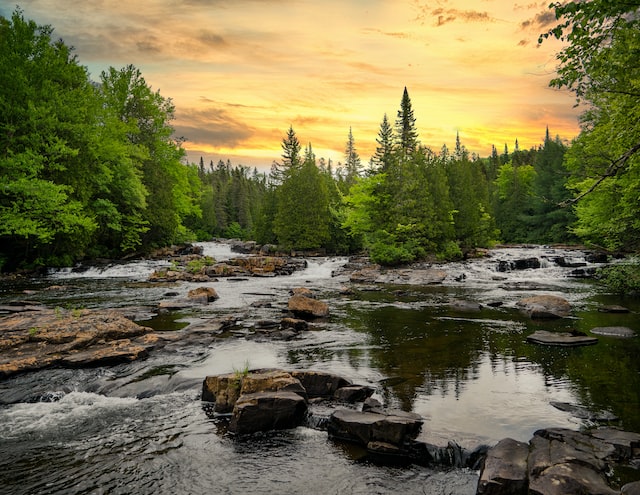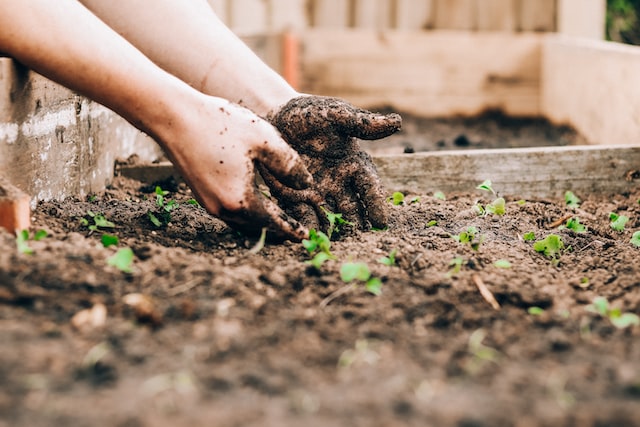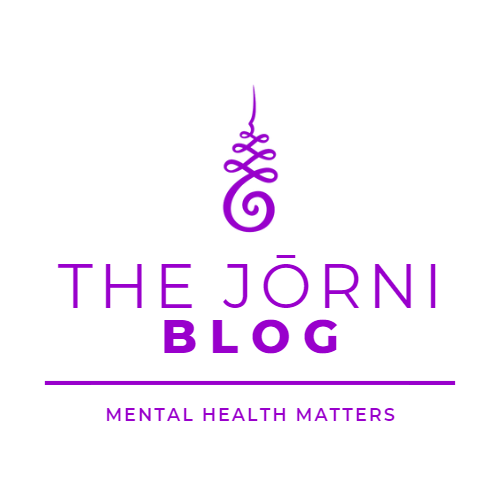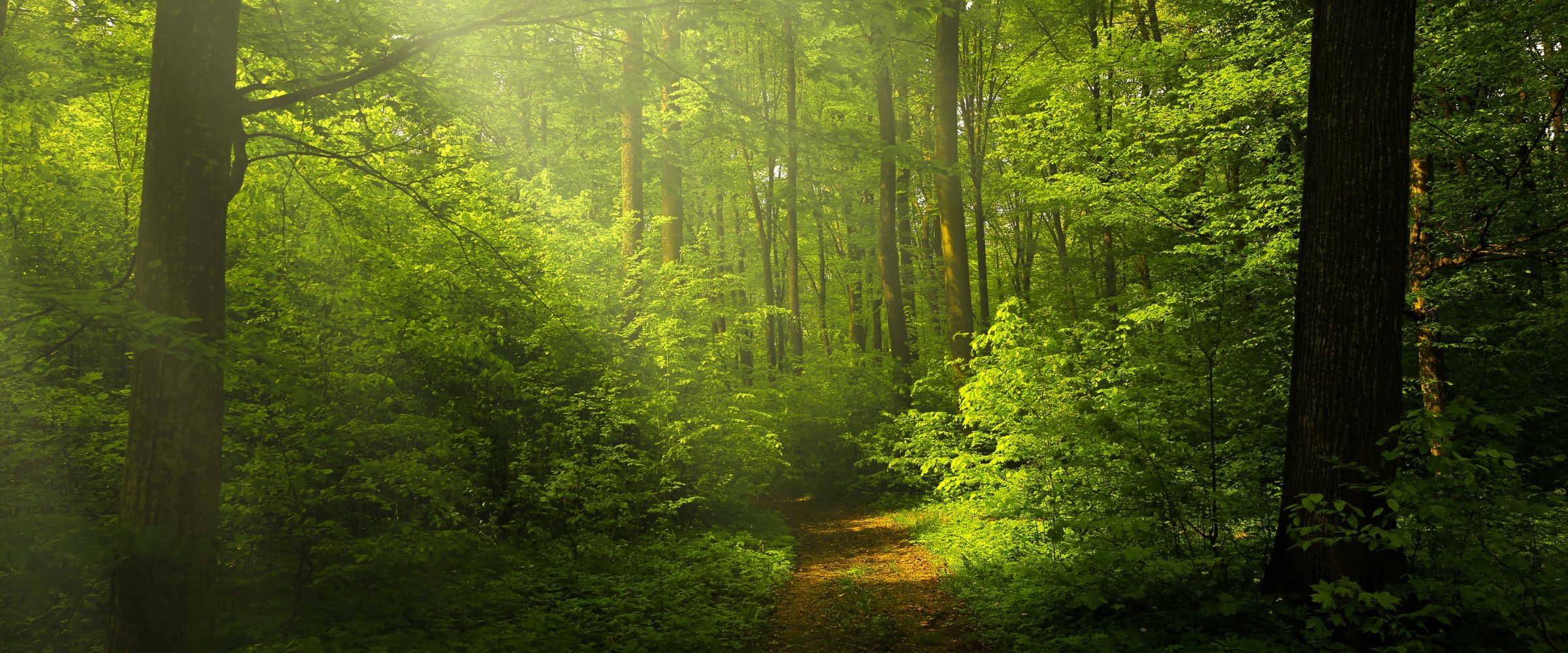Nature and Holistic Healing
Nature can inspire various positive feelings, including peace, joy, and creativity. It can also help people focus. Being more in tune with nature is also associated with much lower levels of depressive symptoms and anxiety, as well as poor mental health.
This week, I had the privilege of interviewing Heather Webster on the podcast, for Stress Awareness Day. She is a Nature-Based Insight Coach and Mindful Outdoor Guide and teaches what she knows about spending time outdoors and healing the body using one's senses, intuition, and insight. Heather was going through a divorce, managing graduate school, and trying to figure out her life. At that time, she also began to experience depressive symptoms from everything that was going on.
Spending time outdoors could be the beginning of your holistic healing journey.
Heather had no energy and felt like she lost her sense of self. That's when she decided she needed time to heal and figure out who she was, and who she wanted to be in the world. Heather wanted to find her place and part of that included returning to nature. She became a mindful outdoor guide, went back to school for nutrition, and began to put in place a career anchored in the great outdoors.
“A walk in nature, walks the soul back home.”
- Mary Davis
Being outside helps me stay grounded and constantly recharges my batteries. So, I just echo Heather’s experience about finding healing in the great outdoors. I like to explore castle ruins, discover beaches, and find mysterious stone circles. Nature is vital for preserving our physical, mental, and emotional health, and many people need much more time outdoors than they currently have in their lives.
What is nature-based therapy?
Nature-based therapy, a type of experiential therapy, aims to promote the mutual healing of humans and their wider ecological environment by incorporating one's interaction with the natural world into counseling therapies.
Ecotherapy is a formally recognized therapeutic intervention that entails participating in outside, nature-based activities. Although there isn't a single definition for ecotherapy, it is frequently used to refer to a routine, structured activity guided by professionals who support you, occasionally therapists who are also trained in their field.

The term "ecotherapy" is credited to Clinebell, who defined it as a form of ecological spirituality that acknowledges nature's ability to nurture us through interaction with natural settings and our capacity to reciprocate this therapeutic relationship to the outdoors.
Shinrin yoku, commonly referred to as Forest Bathing, is a Japanese method for enhancing both physical and mental well-being. It has been shown to speed up recovery from illness, lower heart rate, open up creativity, boost the immune system, reduce the production of stress hormones, and lessen the production of cortisol.
Nature and mental health
According to research, people with stronger connections to the great outdoors tend to be happier overall and more inclined to believe that their lives are valuable. Nature can inspire various good feelings, including peace, joy, and creativity. It can also help people focus. It may come as no surprise that people who have a strong connection to the natural world are more likely to recycle or buy food that has been grown locally.
Direct connection to "real" nature is not always possible for people who live in urban environments, or in health care settings; however, exposure to the outdoors can boost mood and the immune system and decrease negative mental effects. If you live in a city, you might be able to access a park, or a botanical garden. You could also bring the outdoors into your home through plants and flowers.

Even watching nature videos online has been shown to provide some of the health benefits. And as technology advances, virtual reality has been used to boost mood and lessen boredom. VR headsets can be used to simulate hiking in the mountains and spending time in forests or on a beach. The sights and sounds can trigger some of the same beneficial effects as spending time outdoors.
Studies reveal that spending at least 2 hours in nature each week, either all at once or across numerous visits, is necessary to improve your health and wellbeing dramatically. This can include walks or jogging in local parks, trips to a nearby lake, hiking in the mountains, watersports, and anything else including nature.
Nature-Based Insight Coaches
Depending on your goals, working with someone who provides nature-based coaching could greatly benefit you. One area that works very well is developing a positive and solution-focused mindset. Whether that goal is related to weight loss or increased energy, this could be a wonderful step forward. A coach, like Heather, can help with developing your intuition, spending time outdoors, and beginning mindfulness practices.
A coach can also help you with determining a course of action. With the help of outdoor activities and self-reconnecting activities inspired by nature, a coach can help you understand why you might be experiencing certain issues. They can guide you in living in the present moment, enhancing the rich experience of tuning into your surroundings, and opening the doors to deeper connections with the outdoors.

This process of re-inhabitation, or reconnecting to your body and the natural world can bring both mental and physical healing and enhance wellbeing. It can also help with seeing things more clearly or from different perspectives, so you can discover solutions to problems you may be experiencing.
Growing your food, participating in farming, green gyms, or gardening all offer ways to interact positively with the outdoors, while improving the ecosystem, being fit, and joining supportive intentional communities. Even children can participate, through outdoor play and learning through nature play, which also helps them create a positive, lifelong relationship with the great outdoors.
The Takeaway
Connecting with the great outdoors can happen nearly anywhere. Whether you are in a city or in the countryside, live near the ocean or in the mountains, there is always somewhere that can reconnect you to spending time outside. New technology, like virtual reality, is also coming up with creative ways to bring nature into your living room. Although this may not exactly be what is meant by “disconnecting”, it can bring some of the wellbeing benefits that come with spending time outdoors.
Ideally, you are able to disconnect from technology and connect with nature and maybe those around you while outside. You could even participate in various group social activities in green spaces, including sports and outdoor recreation. These outdoor social gatherings promote social inclusion and strengthen local communities. This can help create a sense of belonging and reduce feelings of loneliness and isolation.

Spending time outdoors is a crucial component for supporting mental and physical health. The relaxing effects of nature are beneficial for reducing stress, anxiety, and depressive symptoms.
If you can, you should spend some time outside every day, whether you like hiking through the woods, visiting a nearby park, or just relaxing in a garden.
Living more connected with the outdoors will greatly support a healthier and happier life. And it can also foster clear thinking, better problem-solving, a sense of overall well-being, less stress and anxiety, physical fitness, and deeper social connections with those around you.
Even just making time for 20 minutes in nature every day can make a huge difference at the end of the week!
Ecotherapy / Nature Therapy. (2018, August 15). GoodTherapy. Retrieved September 17, 2022, from https://www.goodtherapy.org/learn-about-therapy/types/econature-therapy
Field, B. (n.d.). How Nature Therapy Helps Your Mental Health. Verywell Mind. Retrieved September 17, 2022, from https://www.verywellmind.com/how-nature-therapy-helps-your-mental-health-5210448
Harper, N. J. (n.d.). Nature-Based Therapy: A Practitioner's Guide to Working Outdoors with Children, Youth, and Families. Amazon.com. Retrieved September 17, 2022, from https://www.amazon.com/Nature-Based-Therapy-Practitioners-Outdoors-Children/dp/0865719136
Laguaite, M. (2021, April 13). Nature Therapy: Types and Benefits. WebMD. Retrieved September 17, 2022, from https://www.webmd.com/balance/features/nature-therapy-ecotherapy
Nature Based Therapy. (2022, May 20). Nature Based Therapy - Holistic Health Treatment | Surf Coast | Torquay. Retrieved October 16, 2022, from https://www.naturebasedtherapy.com.au/
Six-Step Model of Nature-Based Therapy Process. (2020, January 21). NCBI. Retrieved September 17, 2022, from https://www.ncbi.nlm.nih.gov/pmc/articles/PMC7036903/
https://thejornipodcast.com/episode-24-nature-based-healing-with-heather-webster
Annerstedt, M., & Währborg, P. (2011). Nature-assisted therapy: Systematic review of controlled and observational studies. Scandinavian journal of public health, 39(4), 371-388.
Berger, R., & McLeod, J. (2006). Incorporating nature into therapy: A framework for practice. Journal of Systemic Therapies, 25(2), 80.
Bloomfield, D. (2017). What makes nature-based interventions for mental health successful?. BJPsych international, 14(4), 82-85.
Buckley, R. C., Brough, P., & Westaway, D. (2018). Bringing outdoor therapies into mainstream mental health. Frontiers in public health, 6, 119.
Coventry, P. A., Brown, J. E., Pervin, J., Brabyn, S., Pateman, R., Breedvelt, J., ... & White, P. L. (2021). Nature-based outdoor activities for mental and physical health: Systematic review and meta-analysis. SSM-population health, 16, 100934.
Hansen, M. M., Jones, R., & Tocchini, K. (2017). Shinrin-yoku (forest bathing) and nature therapy: A state-of-the-art review. International journal of environmental research and public health, 14(8), 851.
Kotera, Y., Richardson, M., & Sheffield, D. (2022). Effects of shinrin-yoku (forest bathing) and nature therapy on mental health: A systematic review and meta-analysis. International Journal of Mental Health and Addiction, 20(1), 337-361.
Lackey, N. Q., Tysor, D. A., McNay, G. D., Joyner, L., Baker, K. H., & Hodge, C. (2021). Mental health benefits of nature-based recreation: a systematic review. Annals of Leisure Research, 24(3), 379-393.
Maier, J., & Jette, S. (2016). Promoting nature-based activity for people with mental illness through the US “Exercise Is Medicine” initiative. American Journal of Public Health, 106(5), 796-799.
Soga, M., Evans, M. J., Tsuchiya, K., & Fukano, Y. (2021). A room with a green view: the importance of nearby nature for mental health during the COVID‐19 pandemic. Ecological Applications, 31(2), e2248.

